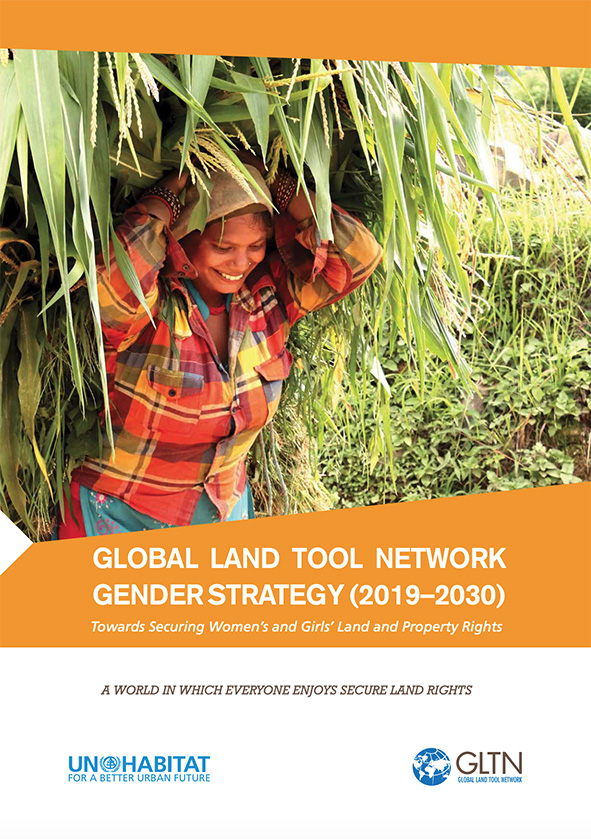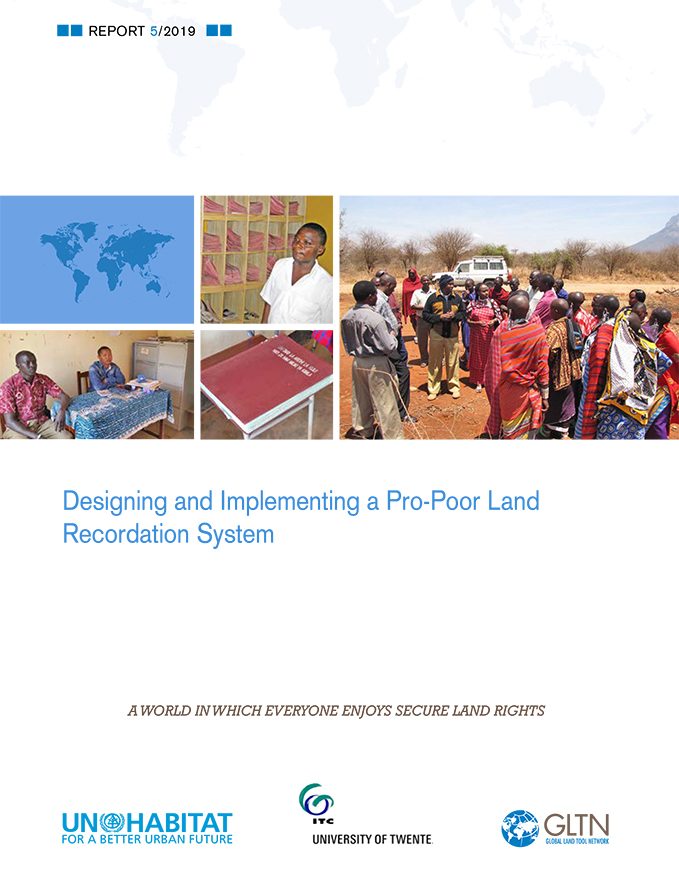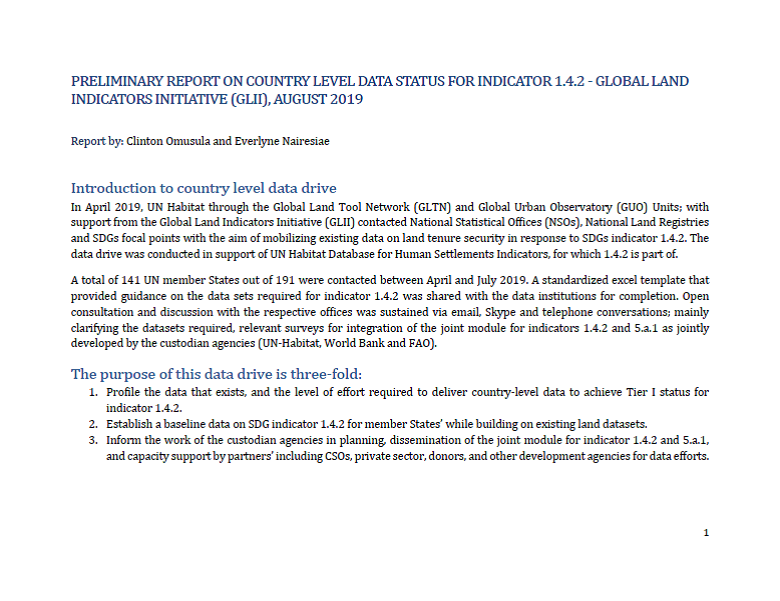Focal point
Location
The Global Land Tool Network (GLTN) is an alliance of global regional and national partners contributing to poverty alleviation through land reform, improved land management and security of tenure particularly through the development and dissemination of pro-poor and gender-sensitive land tools.
Secure land tenure and property rights are fundamental to shelter and livelihoods as well as the realisation of human rights, poverty reduction,economic prosperity and sustainable development.
The Global Land Tool Network (GLTN) main objective therefore is to contribute to poverty alleviation and the Millennium Development Goals through land reform, improved land management and security of tenure.
UN-Habitat through GLTN continues to work towards this with partners who include international civil society organizations, international finance institutions, international research and training institutions, donors and professional bodies.
Most developing countries use conventional land administration systems which cover less than 30 per cent of the country, leaving up to 70 per cent of citizens looking to informal and/ or customary approaches for their tenure security.
While there are many examples of good land policies, there are few policies that have been fully implemented due to lack of pro-poor, gendersensitive and largescale land tools. Further, conventional land titling approaches have largely failed to deliver their expected results since existing technical solutions are too expensive, inappropriate for the range of tenure found in developing countries, unsustainable financially or in terms of available capacity, and instead a range of land tenure options is more appropriate.
Core Values
Consequently, GLTN's core values and principles are founded in the development of land tools that are:
- Pro poor;
- Equitable;
- Sustainable;
- Affordable;
- Systematically large scale /scalable; and,
- Gender-sensitive, while taking into consideration:
- Good governance;
- Subsidiarity; and,
- The Continuum of Land Rights.
GLTN Objectives and Mandate
GLTN has developed a global partnership on land issues pulling together global partners, as well as many individual members. These partners include international networks of civil society, International Finance Institutions, international research and training institutions, donors and professional bodies. It continues to take a more holistic approach to land issues by working towards the following objectives:
- The establishment of a continuum of land rights, rather than just focus on individual land titling
- Improving and developing pro-poor land management, as well as land tenure tools
- Unblocking existing initiatives Assisting in strengthening existing land networks
- Supporting in the development of gendered land tools which are affordable and useful to grassroots
- Improving the general dissemination of knowledge about how to improve security of tenure
- Improving the general knowledge dissemination on the improvement of security of tenure
Resources
Displaying 26 - 30 of 286GLTN Gender Strategy (2019–2030): Towards Securing Women’s and Girls’ Land and Property Rights
The GLTN Gender Strategy (2019-2030) provides a framework for designing land tenure and governance interventions around women’s and girls’ land and property rights. It affirms our commitment and motivates our partners to do more to secure land and property rights for women and girls. It underpins the centrality of gender equality in resource sharing and allocation, including land as a productive resource for women and girls.
Designing and Implementing a Pro-Poor Land Recordation System
The challenges to tenure security in both urban and rural areas are not only large, but they are increasing due to the different types of pressures making land more and more scarce. There is growing acceptance that only by recognizing and supporting a continuum of land rights, can tenure security be reached for all people in an inclusive way.
Preliminary Report on Country Level Data Status for Indicator 1.4.2
In April 2019, UN Habitat through the Global Land Tool Network (GLTN) and Global Urban Observatory (GUO) Units; with support from the Global Land Indicators Initiative (GLII) contacted National Statistical Offices (NSOs), National Land Registries and SDGs focal points with the aim of mobilizing existing data on land tenure security in response to SDGs indicator 1.4.2. The data drive was conducted in support of UN Habitat Database for Human Settlements Indicators, for which 1.4.2 is part of.
GLII Briefing Note: Status of Land Indicators, SDGs Progress 2019 and Related Efforts
The 2030 Agenda for Sustainable Development provides a conceptual framework of 17 goals and 169 targets. An abundance of interlinkages exists between them. Land targets are core to achieving most of the SDGs including poverty eradication, food security, gender equality and empowerment of women, adequate housing and urban development, mitigating and adapting to climate change, reducing and preventing land degradation, and fostering peace and stability for prosperity.
Land and Natural Resource Tenure in Selected Countries of Eastern and Southern Africa. Synthesis Report
For decades food insecurity has been a challenge in Cameroon’s Far North region;mainly due to extreme weather and weak land legislation. Now the problem is escalating. The current humanitarian crisis caused by the Boko Haram insurgency has resulted in over 87,000 refugees and 340,000 internally displaced people in the region. Humanitarian agencies are responding with food aid but little attention is given to underlying challenges;notably access to land. The reform of land legislation is an opportunity to strengthen land rights for local communities and marginalised groups.









